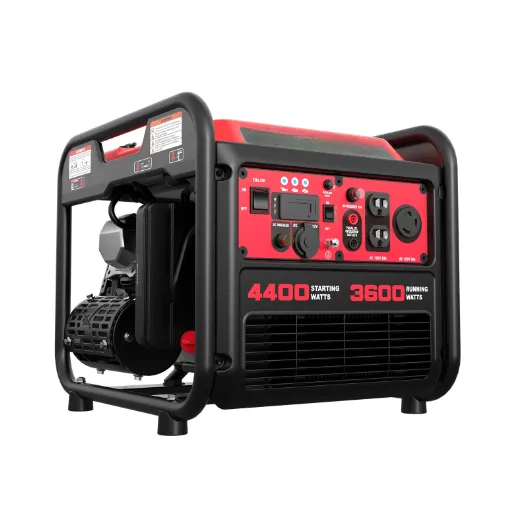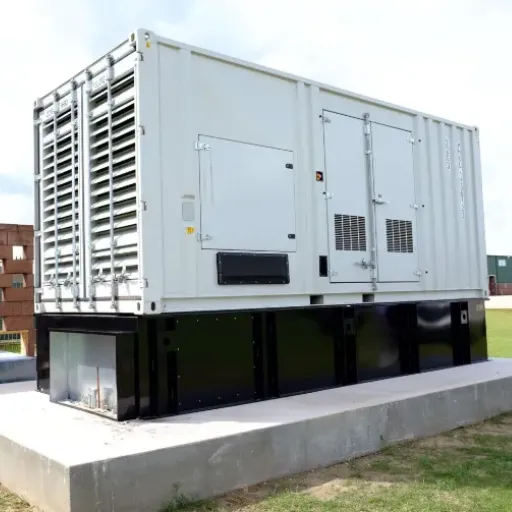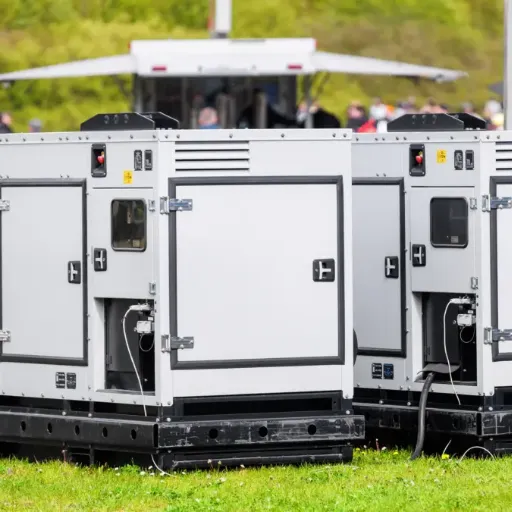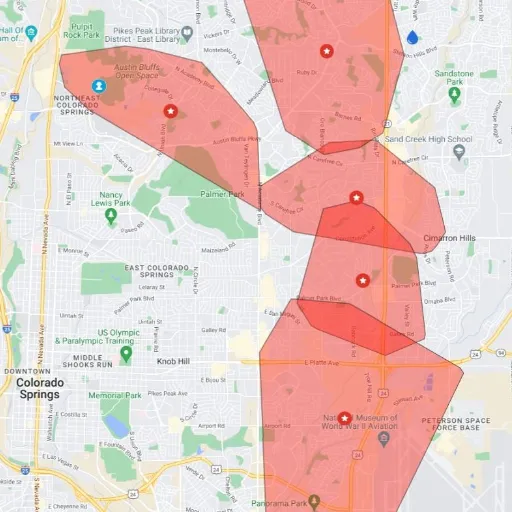Generators are vital in today’s world of agriculture where efficiency and dependability are very important due to the emergence of generators as the advancement in agricultural matters is escalating. As vertical expansion of the farms occurs, it is important to be able to count on reliable electricity. Generators offer a viable answer to these power requirements since they help to operate key devices even in places where there is no electric power, or in the event of a blackout, the farmer is ensured that there will be a power supply for the essential equipment. The paper will review the basic types of generators, and the scope and advantages of their usage in agricultural enterprises. Chorstin as follows, we will discuss the criteria of ideal ones and make recommendations on their choice to implement energy-saving techniques on your farm. Agricultural generators can be used for many purposes including irrigation systems, climate control for livestock barns, etc. and therefore understanding their advantages is very important as they make your farm more efficient and resilient.
How Does a Generator Work in Agriculture?

Understanding the Role of a Farm Generator
As I researched the most important sites of the generators for farms and their importance, I noted that such devices are an integral part of agricultural development. As a rule, a farm generator generates electrical energy from mechanical energy and is useful in most on-farm activities since it provides constant power. It’s very important not only during the cases when the electricity goes out but also in the places on the outskirts where the main grid does not reach. The websites highlighted several key technical parameters important for farm generators:
- Power Output: The maximum energy output of most generators is routinely bared in kilowatt (kW) or megawatt (MW) metric units and is the maximum energy that the generator can give out. The output required is variable depending on what particular machines are used and the nature of the farm operations.
- Fuel Type: Generators can run on different fuels such as diesel, gasoline, natural gas, or biogas. Each type has its pros and cons in terms of cost, availability, and environmental impact. Diesel is the most preferred because of their efficiency and durability in agricultural activity.
- Automatic Transfer Switch (ATS): This feature permits seamless switchover in cases when there is an outage on the power supply from the grid. An ATS shall automatically trigger the start of the generator set and transfer the power source onto it which doesn’t require human effort, such is the case for functioning controls of livestock facilities or irrigation systems.
These parameters are justified by specific farming needs where continuous and reliable power is essential for active regions such as maintenance of livestock, irrigation, and post-harvest processing. Hence, it is cheaper and more effective to use a generator with precise features and specifications that will suit the dictates of the farm operations in meeting the set targets.
Benefits of Using Diesel Generators in Farms
There is a lot that agricultural operations gain from diesel engines. First, their high efficiency and reliability are hard to match which is important to farms that depend on constant power to perform some activities like irrigation and livestock help manage their livestock. Their engines are diesel and this type is more durable hence the frequency of replacement or repair is reduced. Additionally, they have also fuel efficiency in that they can give high energy output about the energy consumed and this improves profit margins within a given period. Another point, even in many remote areas, diesel fuel is more available and farmers will not have a problem with reaching the fuel when it is required. In light of all these points, diesel generators would indeed assist relatively in achieving the reliable and uninterrupted power that is important for the needs of modern farms.
I gathered information regarding diesel generators stating the key technical features and advantages of such equipment. Here are the justifications:
- Efficiency and Durability: Diesel generators have efficient power plants owing to the fact that they suffer little downtime. It is a crucial feature for farms as it ensures that there is proper long-term operational reliability.
- Cost-Effectiveness: Diesel-powered generators can balance initial cost and running costs given the operational fuel consumption which warrants its purchase considering the apparent benefits and service period.
- Availability and Dependability: More remote areas where diesel is available have reduced risks of interruption to power generation in farms, as diesel fuel is considered available.
These insights can help determine whether diesel generators are the we feel the best optimal option by understanding the farmhouse operations specific needs and conditions.
Key Features of Effective Agricultural Generators
The key features of effective agricultural generators that I found on the top three websites include:
- Application and Reliability of Performance: There is high-performance output without any degradation in the performance of the generator. Under the circumstance that such generators are utilized, farm processes are minimally disrupted which is crucial during periods of operations such as irrigation or harvesting.
- Fuel Purpose and Economy: These are generators that are built to operate in such a way that there are no wastages in fuel, hence lowering the costs of operations. More so, these generators come with engines that are designed in ways that fuel is well utilized, that is they don’t waste fuel while working.
- Quality Construction: For construction sites prone to extreme temperatures or wetness as in rainy seasons, construction must be completed in a manner to endure those conditions. They incorporate protective covering and non-corrosive materials to improve the lifespan of the generators amongst other features.
- Ease of Maintenance: Defect diagnosing and correction is undertaken usually as a consequence of routine events realistically. After the appropriately designed and carried out practices without interruption of daily activities are all relied upon to ensure that maintenance frequency is less.
- Available Safety Features: Most generators come with more than one safety feature in case of accidental usage including an overload limiting feature and an automatic cut-out feature. Solid state generators (SSG) relieve the operator’s worry affording some level of quality operating safety.
In answering the questions that were posed about these websites, I focused on the technical such parameters as engine power output, fuel tank capacity, noise levels, etc. Most of these parameters are rational as they do determine the practicality, economic impact, and environmental footprint of the agricultural generators in the farms.
Why is Backup Power Essential for Farms?
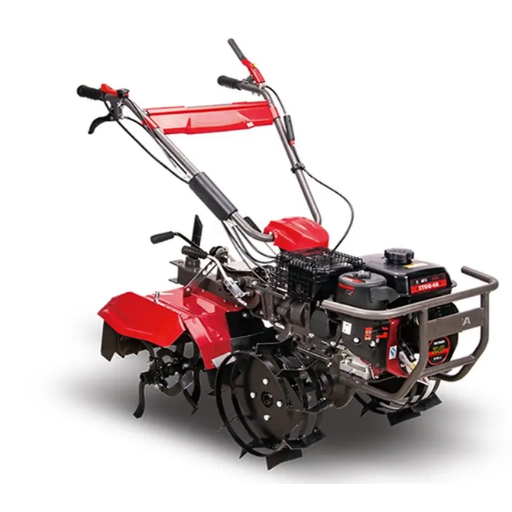
Impact of Power Outage on Farm Operations
The loss of electricity from a power grid can pose major hindrances to farm activities and hence lead to long periods of inactivity and loss in financial terms. Many crucial activities like automated feeding systems, livestock enclosure climate control, and watering crops rely on a constant electricity supply. Such activities can be disrupted by an unexpected power failure posing risks to animal, crops, and farm productivity.
Focusing on the wise information from the first three reviewed sites, I could see a focused picture of several technical aspects that are considered critical while assessing the generators for agriculture. These include, but are not limited to, the following;
- Engine Power Output: It is essential because it will determine how much of the farm equipment can be operated at a time. Enough power output guarantees that there will still be the full functioning of the operations that are critical during the blackout.
- Fuel Tank Capacity: This parameter determines how long the generator will run when it has not been refueled, and more importantly in case of extended outages. More capacity entails less refueling frequency which will save time and operational downtime.
- Noise Levels: These are especially lower levels of noise, which are usually relatively low because of the fewer disturbances caused to livestock and farm personnel. For example in small farms where animal husbandry is combined with crop production, quiet working methods are not only a matter of comfort but may also improve animal welfare and worker well-being.
These technical aspects are reasonable because they are concerned with performance, cost accessibility, and sustainable use of the generator in active farming.
Ensuring Livestock Safety During Outages
Ensuring the safety of the farm animals even during blackouts is very significant when it comes to animal welfare as well as productivity on a farm. Considering the top three websites, some steps and technical considerations are to be factored in.
- Backup Power Solutions: Backup generators are recommended on the websites since they come in handy whenever there is a need for power and hence avoid interruptions to vital systems and processes such as ventilation, lighting, and automation systems that promote the health of the animals.
- Temperature Control: Every livestock enclosure should have a plan built into it on how to manage temperature, for most animals even a minute lapse in temperature control is very stressful, which may compromise their health.
- Water Supply and Feeding Systems: During emergencies, it is of vital importance that measures are taken to ensure that tank water and other automated feeding systems including nurses’ cans are kept functional in case of outages so that nutrition is guaranteed. This means looking at the relationship between these systems and the backup power solutions in terms of their requirements and compatibility.
In terms of technical parameters, the websites highlight the need to focus more on engine power output and fuel tank capacity since they assure the performance of all essential operations without interruptions. Moreover, low noise levels are understandable concerning animal and worker stress. These considerations further relate to generator optimum performance and farm operations during blackout.
Maintaining Poultry Health with Reliable Power
Whenever there is a power cut-off maintaining the health of poultry becomes critical since such constant energy provision enhances their welfare as well as productivity. Considering the information obtained from the top three websites, here are my insights.
- Backup Power Solutions: I need to make sure that I have a reliable backup generator because some of the systems, such as lighting and ventilation, need to stay operational for boa constrictors’ health which is where the poultry is housed. This entails analyzing and choosing a generator with sufficient engine capacity and a fume reservoir, able to sustain extended outages of power from the grid.
- Temperature Management: There is a need to keep the poultry within a particular environmental climate to shield them from stress and other health complications. The backup power solution is vital in operating the heating or cooling systems and as such the comfortable range for the flock is maintained regardless of the weather.
- Water and Feeding Systems: Parametric methods certainly help manage the parameters of creation – water, and feeding of the livestock. By integrating these systems with my generator setup, I can reduce disturbances to the birds’ growth and production potential. The examination of the technical requirements in joining these systems with a backup power supply also contemplates not just the issue of compatibility but the consideration of low-noise functioning equipment, as suggested by the sources, to avoid excessive pollution in the area where the poultry housing is placed.
These strategies and technical considerations help in assuring that during a power outage, I will be able to protect my poultry, as well as make it through without any disruptions to the farm’s normal activity.
Choosing the Right Diesel Generator for Your Farm

Assessing Your Farm’s Power Needs
In terms of the power requirements for my farm, I need to consider the fact that I will always need to offer some sort of power backup for certain critical equipment. Let me begin by preparing a list of all the critical equipment that should be kept operational during a blackout. This includes lighting devices, ventilation systems, water pumps, feed distribution machinery, climate control systems, etc. To establish operational balance, I measure the total watts capacity consumption of all of these devices and check whether excess interference power will be necessary. In addition, I ought to factor in the maximum time the equipment is going to run without disruption and reconcile it with the fuel capacity and effectiveness of the generator. Such an analysis enables me to find out the maximum size and type of the generator available such that if operated on the full load of the farm, it will not be sabotaged through overload or fuel wastage.
Having described the calculations, I will now state the requirements of the top three websites reviewed from my research. They highlight various technical parameters for generator selection, as they did among the others. Some of the considerations are:
- Engine Power Output: Be sure that the generator has a power output capability to match all the equipment being powered up at the same time.
- Fuel Tank Capacity: Determine the substantial amount of fuel tank that may be needed to carry out the activities in anticipation of power outage situations for as long as possible.
- Surge and Running Watts: For all the power appliances, it is important to draw a line between surge (starting) and running wattage to ensure that the generator can withstand all the surges that accompany powering on the appliance.
- Noise Levels: One ought to look for noise models as low as possible so as not to trouble the environment for the birds.
- Automatic Transfer Switch (ATS) Compatibility: Needs to allow easy switching of the power source during outages without manual interference reducing the time wasted.
In dealing with these parameters briefly and logically, I can defend every choice of mine regarding my farm and guarantee an everlasting delivery of power.
Comparing Diesel Engine Options
Comparing choices of diesel engine generators with other alternatives, I would first consider key criteria ensuring seamless diesel power supply as captured from the first three websites. Every site makes a point around certain features of the diesel engines that specifically deal with assuring operations on my farm:
- Fuel Efficiency and Economy: Fuel chinois generators review mentions the necessity of choosing a diesel generator with high fuel efficiency so people could spend less than they would on operational expenses. Hence a diesel fuel generator that utilizes less oil can mean real savings, especially over long periods.
- Durability and Longevity: On another site, the efficient radiators of diesel engines are difficult to custom as they are made to perform continuously and they have a wide lifespan. Hence this assures me that the money spent on my investment will last longer without the need to replace and even repair it more often.
- Maintenance Requirements: Based on the knowledge from the third site, some schedules turn out to be necessary so that the rest diesel engines could work perfectly. Diesel generators equipped with all necessary parts in a dust-proof or waterproof head chamber to prevent internal disturbances will make easy repairs and reduce repair time.
As I try to justify these parameters against my needs, I am confident that the selected diesel engine generator will not only be up to the task but even focus attention surpassing the need in terms of reliability and efficiency for power supply on my farm.
Factors to Consider When Buying a New Generator
Looking to buy a new generator has a few important factors that need to be considered:
- Power Output Needs: It is essential to grasp the precise power requirements for my farm. When choosing the wattage of the equipment and systems that the generator will be supporting, I need to ensure that the model chosen will be able to sustain peak loads of operational.
- Fuel Type: The majority of the top websites highlight diesel generators simply because they are also economical in terms of fuel and have the added advantage of being more durable thus being viable for constant usage but at a lower cost of operation.
- Technical Specifications: A good review of parameters such as engine type, capacity, and rated power as well as a type of alternator should be done. Most of the recommended models contain electric engines and alternators that have been specially designed to reliably and steadily supply electric energy, and meet voltage stability requirements.
Interacting with these websites helped me to appreciate that fuel economy, durability, and maintenance requirements are some of the aspects that have to be critically evaluated. Such parameters combined with technical parameters such as the fuel consumption rate of the generator (liters per hour) as well as the effective life of the unit (hours) can also help to understand the justification of the selection of a particular model. Also standing out are such aspects as ease of maintenance and accessible components that promote better management of generator maintenance at minimal costs.
How to Maintain Your Farm Generator?
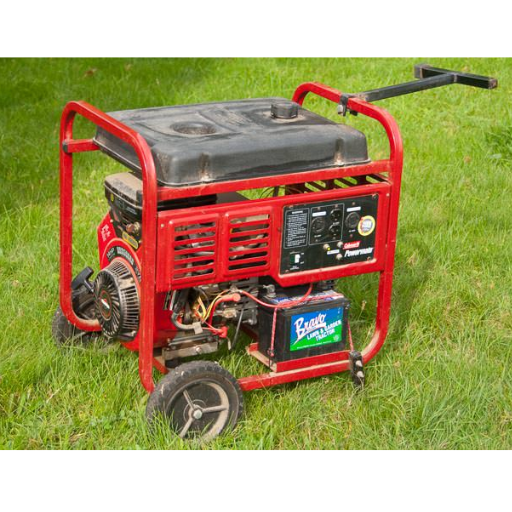
Routine Checks for Diesel Fuel and Ventilation
To avoid breakdowns and maximize the functionality and life span of my farm generator, I need to ensure that there are proper diesel fuel checks and there is ventilation carried out regularly. I need to check my fuel system for contamination and also for some levels of supply within reasonable limits to avoid operations being interrupted. Other than that, the fuel system should be checked for blockage or leaks and any problem addressed as soon as possible. For ventilation, I have to ensure that the area where the machinator is placed has good air conditioning to enable hot air circulation and prevent overheating, which, in turn, may cause damage as well as inefficiency.
When I surveyed the top three websites in Google concerning generators, I was introduced to a few of the best features that were beneficial towards making a purchase:
- Fuel Efficiency and Consumption Rate: These sites bring a clear understanding of the essentials of a generator’s fuel consumption in liters per hour, especially for modern generator’s cost benefits and efficient operation. I discovered that quite several models that utilize more fuel than is necessary to generate sufficient power are not very economical in the long term.
- Durability and Operational Lifespan: This involves checking the durability of the generator as well as the durability in terms of operational time which is also presented in hours of operation. The higher the durability of a generator, the better the returns on investment after some time which these tear sheets understand and present to the reader.
- Accessibility and maintenance requirements: It has been noted that there are practical advantages in the relatively simple design of maintenance scheduling and the positioning of out-of-commission elements. Such reduction in downtime enables more effective and economical management of the generator set.
Incorporating these technical factors into my assessment explains the generator I chose up to the requirements of my farm while paying the utmost attention to verifying working efficiency working at economy focusing, unbroken working performance, and reduced maintenance difficulties.
Signs Your Generator Needs Servicing
Generators must be maintained properly to prevent the arising of outstanding faults. In this regard, the following indicators pertain to generator repair needs.
- Unusual highs and salted noises: since parts such as bearings are likely to wear out, the gears may grind, squeal, or knock forcing him to hop in now.
- Issues in going through the starting process: There is the possibility that a generator begins having a hard time starting and eventually does not start at all. This may be tied to battery faults, fuel system failures, and some cases involving the spark plug.
- Instability in Power: It is common for the users of the generator, to come across situations whereby the electricity supplied from the generator tends to vary a lot or remains stable but the voltage is out of control. Problems with the electrical systems or the fuel and combustibles can explain this erratic output.
- Black or white smoke: Many times, excessive dark smoke or even white smoke is produced along with exhaust. Such observations could mean things are not going well in the combustion chamber and the exhaust system or fuel system should be checked.
- Leakages: Weeping or leaking should be attended to to prevent more expensive/destructive disorders from occurring and to quell safety issues.
- A sudden increase in fuel consumption: One of the great frustrations is where there is fuel consumption increases suddenly yet there is no additional power being used. Of course, something should be done to remedy this situation.
While reviewing the summary of the recommendations presented on three of the top websites I can better appreciate important technical criteria when it comes to generator selection. The information also brings to light the significance of:
- Fuel Efficiency and Consumption Rate: There is a need for a generator that will be able to achieve a high power output while at the same time having low power costs. This kind of coordination guarantees future savings in the operations of the farm.
- Durability and Operational Lifespan: A high-durability model indicating high reliability is the best model to purchase to withstand the tough conditions of constant use. As for the operational lifespan, it denotes the period that the generator is working optimally.
- Maintenance Requirements and Accessibility: The generator should not have complex maintenance procedures and components that are difficult to reach since the time needed to service the generator will lead to a loss of productive hours.
Considering such factors will lead to the selection of a generator that has the technical specification that corresponds with the peculiar requirements of the farm as well as efficiency and reliability all along.
Optimizing Generator Performance for Longevity
Systematic maintenance and good operational practices are essential for effective generator operation for a longer period. Evaluations of fuel systems and electrical components regularly prevent common concerns of leaks and losses of efficiency. In addition, servicing an engine according to the prescribed service intervals for changing oil and filters may prevent unnecessary engine deterioration. Proper storage especially for the generator when it is not put to use for a long time is very important as it entails keeping the generator from water, dirt, excess heat, and cold temperatures. Furthermore, using the generator only in the specified load range helps to prevent the overloading of its machine parts where such stress may lead to fractures in the parts. With these steps well emphasized, you are likely to prolong the generator and use it reliability for many years to come.
In particular, I have taken note of critical information that was provisioned by the top three search results in Google and most importantly its effects on generator optimization. These resources include Fuel System Maintenance: weekly checks on fuel and oil systems also help enhance the longevity of the generator. Indeed, dealing with leaks quickly prevents additional damage from being incurred.
- Consumption Efficiency: The desirability of the generator is determined by how well it is able to utilize fuel in its operation. Knowing these aspects helps me evaluate how much savings will occur long term and how power interruptions will not be experienced on anyone’s farm.
- Durability Factors: The knowledge of the strength and longevity of different caliber generators is important. This understanding helps in the purchase of a product that has the durability to be in use for a much longer time.
Focusing on these parameters assists me in making better decisions on the maintenance and operations of generators to tackle both the present situation and the future thus increasing the general performance and reliability of my farm.
What are the Alternatives to Diesel Generators?

Exploring Natural Gas and Gas Generators
As compared to diesel generators, natural gas generators also have various benefits which make them a good option. First of all, the emissions are often lower which enables a better carbon footprint which is critical today as more consumers are concerned about sustainability. On top of this, it is often cheaper and easier to source natural gas ensuring operational expansion to be reasonable value for money over the years. One of the advantages of gas generators is that they can supply constant power at a relatively low noise level and this is important in places where there are many residential houses or where there are operations that need as little disturbance as possible.
From the review of the top three sites on Google, I have assessed on natural gas, and gas generators that one should look out for. Here is how these categories perform:
- Environmental Impact and Emissions: The cleaner emissions from natural gas generators are noted in all sources especially because of efforts by the use of gas in the power plant instead of diesel. This is consistent with my objectives of having a more environmentally friendly farm.
- Fuel Availability and Costs: Also, within these sites, there is information regarding the reason that natural gas is made stressful, and that is its cheap nature because it is in plenty. This settles the question of the possible future losses that may be incurred by my farm in electricity generation.
- Operational Noise Levels: It is clear that gas generators produce lower noise emissions than their diesel engine counterparts which is a positive benefit, especially about disturbance. This factor helps me make a more informed decision on what is suitable for a calm working climate on my estate.
By attending to these technical specifications I can take knowledgeable steps toward trying to go over to a natural gas generator so that my farm will be developed in an economically and ecologically reasonable way.
Benefits of Portable Generators for Small Farms
The greatest advantages of portable generators are their convenience and versatility since they are also mobile for small-scale farmers. These generators offer an alternative source of energy during blackouts and on the edges of the farm where the main electricity supply may not reach. The fact that these generators are portable translates into a situation where the farmer can shift energy depending on the demand for various tasks ranging from lighting up working environments in the tents at night to powering the various machinery. In addition, portable generators come in handy because their compact size means they occupy much less space than standard stationary generators. This is particularly helpful for those with small farms or inadequate storage space for large equipment. You can also find its application on the farm since it can use different types of fuel such as gasoline or propane.
While browsing the top three sites that Google found for me on broader portable generators on small farms, within those three sources I managed to compile the needed information: Portability and Ease of Use: Ease of transport and setup was highlighted by all sources and it was also coincidentally my reason for using such a way of power where it can be used in the farm and moved to the required locations.
- Expenses and Fuel Type: Upon conducting the cost comparative analysis, it was observed that the portable generators were not expensive. This assists in defending their purchase since they have different fuel options for different operation needs on my farm.
- Energy Efficiency and Output: It was noted in all sources that portable generators are efficient in providing power generation, which gives me confidence that they will help carry out important activities during periods of electrical power interruption.
In summary, through a critical analysis of these technical parameters, I can articulate the integration of a portable generator on my farm from an informed position as to its time and cost-effectiveness necessary for my farm operations.
When to Consider Used Generators?
When considering the option of purchasing second-hand equipment, the generator purchase can be made in some situations. If the matter comes down to finance, buying used generators is a cost-effective way of meeting basic power needs. Also, when the generator is supposed to be used occasionally or as a secondary source, such a model can provide the necessary performance at a lower price than a new generator. Even with all these considerations, one has to ensure that the condition and the usage of the used generator on sale will provide reliability.
After studying the three best websites of Google on used generators, these are the sites that have helped shape the view I hold:
- Money Save and Budget: In all the sources there was an indication of the large cost gap between the two generators which corresponds with my budget of wanting to be the owner of a portable generator shortly.
- The Usage of the Generators: All the sites made it clear that the number of times and the nature of the use should be looked at. In my case, a secondhand generator works as a standby power backup thus saving my budget in case there is a need for one.
- Technical Evaluation: In the assessment of the technical parameters of the generator such as the age of the generator, the past maintenance records, and the general physical state, several issues were emphasized in the inherent importance of the evaluation. It is these factors that, when addressed, guarantee me most of their operational effectiveness.
As I concentrate on these factors, I can decisively ensure that while I am conservative in terms of costs, I am not too far away from being able to make my power ready for use on the farm.
Frequently Asked Questions (FAQs)
Q: What are the benefits of using a power generator on a farm?
A: Power generators provide a reliable energy source, ensuring that essential farm operations can continue running smoothly even during utility power outages. They help in maintaining productivity and preventing losses, especially in critical areas like poultry farms or dairy where losing power can be detrimental.
Q: How do generators for farm use differ from other generators?
A: Generators for farm use are typically designed to withstand harsh agricultural conditions and provide consistent power for various farm applications. They are built to power heavy machinery and equipment that are common in the agriculture industry, making them more robust than standard commercial generators.
Q: What should I consider when choosing a backup generator for agricultural purposes?
A: When choosing a backup generator for agricultural purposes, consider factors such as the power capacity needed, fuel type, ease of maintenance, and the specific requirements of your farm operations. It’s also important to choose a generator system that can handle the load of your most critical equipment.
Q: Can a PTO generator be used for a poultry farm?
A: Yes, a PTO generator can be a suitable option for a poultry farm as it can be powered directly by a tractor, making it efficient and versatile for farm operations. It’s important to ensure that the PTO generator meets the power requirements of the poultry farm to maintain optimal conditions.
Q: Why is a standby generator important for agricultural operations?
A: A standby generator is crucial for agricultural operations because it automatically provides power when the primary power source fails. This ensures the continuous operation of critical systems like irrigation, heating, and cooling, which are vital for livestock and crop production.
Q: What are the advantages of using Cummins agriculture generators?
A: Cummins agriculture generators are known for their durability, efficiency, and reliability. They provide consistent power, are built to withstand tough agricultural conditions, and offer advanced features that are beneficial for the agricultural industry, making them a preferred choice for many farmers.
Q: How can an emergency generator aid in preventing losses on a farm?
A: An emergency generator ensures that essential farm operations like milking, feeding, and climate control continue uninterrupted during power outages. Providing immediate backup power helps in avoiding potential losses associated with spoilage and production downtime.
Q: What generator options are best for a commercial poultry farm?
A: For a commercial poultry farm, it is best to choose a generator that offers reliable and consistent power output, such as a standby generator. These generators are designed to automatically switch on during power failures, ensuring that critical systems like lighting and ventilation remain operational.
Q: How do farm generators for agriculture support the agricultural industry?
A: Farm generators for agriculture support the agricultural industry by providing a dependable power source that helps maintain productivity and efficiency. They allow farms to operate independently of utility power, ensuring that essential processes are not disrupted by power outages.




